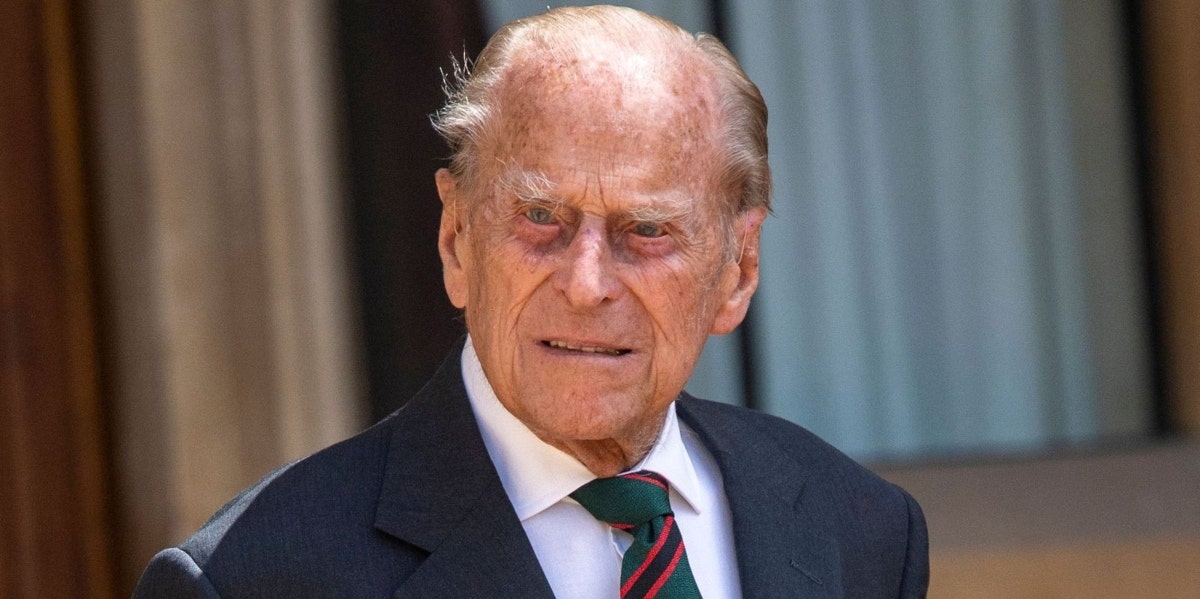Why Prince Philip’s Controversial Past Has People Celebrating His Death On Twitter
Some are mourning, but most are meme-ing
 Tim Rooke/Shutterstock
Tim Rooke/Shutterstock As the United Kingdom enters a period of mourning following the death of Prince Philip at the age of 99, some social media users have taken a slightly less somber stance on the monarch’s passing.
While political leaders across the globe have been expressing their condolences, Twitter has been rife with memes and trolls targetting Prince Philip, whose life was filled with plenty of controversy and not-so politically correct moments.
The Royal Family has been a divisive subject for centuries, but in the midst of an international racial reckoning and attempts made by Scotland and Northern Ireland to seek independence from the United Kingdom, Prince Philip and all he represents has become a particularly contentious issue.
Where there is news, there will be memes, without a doubt. But the level of trolling this time seems surprising given the fact that the world has just lost the husband of the longest standing British sovereign.
However, Twitter has been quick to remind us that even death can’t excuse a lifetime of controversy.
Scottish and Irish nationalists have been celebrating Prince Philip’s death online
On Irish Twitter, little sympathy has been expressed after the death of their colonial oppressor. Ireland’s lack of respect for the British monarchy is a tale as old as the country itself, but resentment toward British rule has become particularly prevalent since the dawn of Brexit.
As Northern Ireland seeks to distance itself from the U.K., Brexit has reignited calls for a United Ireland, and recent weeks have seen a rise in sectarian violence between Irish Republicans and Loyalists.
Needless to say, many of these Republican figures have not been as emotional about Prince Philip’s death as their Loyalist counterparts.
A similar perspective has been taken amongst Scottish social media users.
In 2014, Scotland voted to remain in the U.K. by a slim majority. However, since Brexit, Scottish politicians are vying for a second independence referendum.
As Scotland’s First Minister Nicola Sturgeon expressed her condolences towards Prince Philip on social media, many Scottish nationalists had a different attitude.
One user wrote, “Don’t include the people of Scotland in your message, good riddance to him.” Another added: “Nothing to do with us, not my monarchy and never will be.”
Many have dredged up Prince Philip’s controversial past with racism and misogyny
If there’s one thing that unites nations in solidarity against Prince Philip, it’s outrage at his problematic racist, misogynistic and all-around ignorant past.
Across Black Twitter and those who support anti-racism, anti-sexism, and political correctness in general, many have been quick to push back against the praise and glory given to the late Prince.
He once reportedly asked a Kenyan woman, “You’re a woman aren’t you?” while accepting a gift in Africa.
"If you stay here much longer you will all be slitty-eyed," the Prince told British exchange students who lived in Xian, China in 1989.
"So who's on drugs here?... He looks as if he's on drugs," he asked of a 14-year-old boy while at a Bangladeshi youth club in 2002.
He asked a female Sea Cadet who told him she works part-time in a club, "Is it a strip club?" in 2009.
Accusations of racism within the Royal Family have been a heated conversation topic since Meghan Markle spoke out about her experience as a Black woman in the British monarchy.
Prince Philip and his family are known to have had close ties with the Nazis during his teen years. As the child of a royal but broken home, he moved around to several European branches of his family before spending his teen years in Nazi Germany.
This would perhaps explain some of his controversial perspectives, though the British monarchy can hardly be absolved of racist tendencies without having to point to any external influences to blame.
After generations of colonial power, the prince, his ancestors, and his descendants have exerted influence over oppressed nations and territories. It’s not all that surprising that a man whose life is being praised and exalted for the accident of his privileged birth has had his share of controversy.
Alice Kelly is a writer living in Brooklyn, New York. Catch her covering all things social justice, news, and entertainment.

